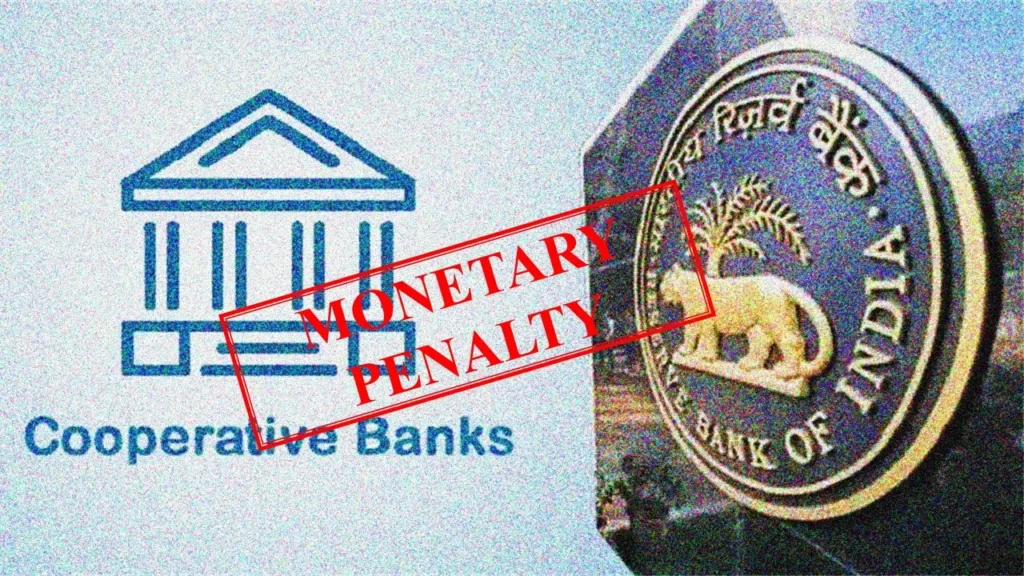RBI Takes Stringent Actions Against Cooperative Banks: License Cancellation and Implications
In a continued effort to address issues within the cooperative banking sector, the Reserve Bank of India (RBI) has taken significant actions, including the cancellation of licenses for several cooperative banks. These actions come as a response to various challenges faced by these banks, ranging from inadequate capitalization to governance issues. This article delves into the recent developments, their implications, and the broader landscape of cooperative banks in India.

Cooperative Banks Under Scrutiny
Cooperative banks in India have played a crucial role in providing banking services to rural and semi-rural areas. However, they have also encountered a multitude of issues, including dual regulation, financial instability, and political interference. As a result, the RBI has been closely monitoring and taking measures to rectify these concerns.
License Cancellations in Fiscal Year 2023
The RBI’s actions in fiscal year 2023 have been particularly impactful, with the cancellation of licenses for eight cooperative banks. These banks include Mudhol Cooperative Bank, Millath Cooperative Bank, Shri Anand Cooperative Bank, Rupee Cooperative Bank, Deccan Urban Cooperative Bank, Laxmi Cooperative Bank, Seva Vikas Cooperative Bank, and Babaji Date Mahila Urban Bank. The reasons for these license cancellations vary, encompassing inadequate capitalization, failure to comply with legal regulations under the Banking Regulation Act, and concerns about future earning prospects.
Monetary Penalties as Warnings
In addition to license cancellations, the RBI imposed monetary penalties on multiple cooperative banks. These penalties ranged from Rs 50,000 to Rs 5 lakh and were attributed to various violations. These infractions encompassed issues such as failure to pay interest on balance amounts in deceased individual depositors’ accounts, violations of Know Your Customer (KYC) norms, unauthorized One Time Settlements, and breaches of other banking regulations.
A Gradual Approach to Enforcement
It’s worth noting that before resorting to license cancellation, the RBI often issues warnings through monetary penalties. This gradual approach is aimed at alerting banks to issues in their operations, offering them an opportunity to rectify shortcomings. However, when repeated violations occur, leading to a lack of compliance with regulations, the RBI may take the more severe step of suspending a bank’s operations.
Consequences of License Cancellation
When the RBI revokes a cooperative bank’s license, the bank must cease all fresh business transactions immediately. This includes the acceptance of deposits and repayment of deposits. The bank is then required to initiate a winding-up process, which involves returning depositors’ money. Importantly, bank deposits under Rs 5 lakh are covered under the deposit insurance cover.
Additionally, cooperative banks are tasked with transferring existing advances (loans) to another bank. This transfer ensures that customers’ ongoing financial commitments are not disrupted during the winding-up process.

Governance Challenges in Cooperative Banks
One of the core issues leading to regulatory actions against cooperative banks is governance. These banks often face challenges related to corporate governance, dual regulation by both the RBI and state governments, and a lack of clarity regarding oversight responsibilities. This confusion has eroded customer trust, particularly after the collapse of the Punjab Maharashtra Cooperative Bank (PMC) in 2019.
Bright Spots in Cooperative Banking
Amid the challenges, there are examples of well-performing cooperative banks. For instance, the Saraswat Cooperative Bank, with assets under management exceeding Rs 75,000 crore, stands out as a robust institution. Furthermore, Shivalik Mercantile Cooperative Bank transitioned into a Small Finance Bank (SFB) in 2021, demonstrating the potential for cooperative banks to evolve and compete effectively.
The Role of Cooperative Banks
Cooperative banks still have a significant role to play in India’s financial landscape, especially in underfinanced rural and semi-rural areas. Nandkishor Desai, a retired banker, emphasizes their importance in facilitating financial inclusion.
The Way Forward
To address the challenges faced by cooperative banks, the RBI must provide comprehensive support to enhance their operations and services. A collaborative effort is required to strengthen governance, clarify regulatory oversight, and rebuild trust with customers.
The recent actions taken by the RBI, including license cancellations and monetary penalties, underscore the regulator’s commitment to ensuring the stability and integrity of the cooperative banking sector. While challenges persist, cooperative banks have the potential to play a vital role in expanding financial services and promoting financial inclusion across India. Cooperative banks, regulators, and stakeholders must work together to address issues, strengthen governance, and build a more resilient and customer-focused cooperative banking sector.
